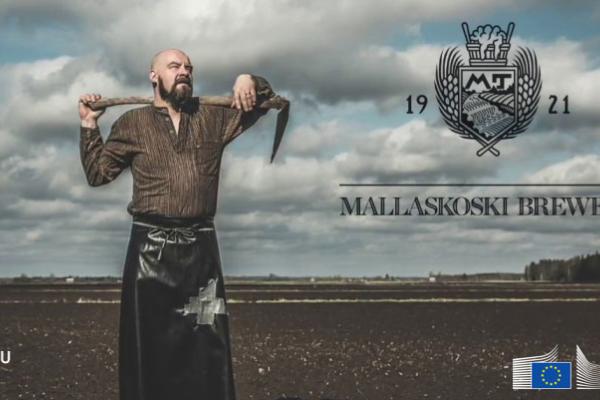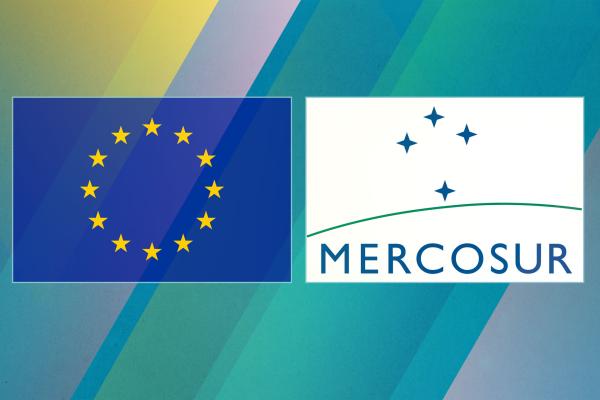- Country or region
- Mercosur
- Trade topics
- Negotiations and agreements
On 6 December 2024, the EU reached a political agreement with the four founding members of Mercosur (Argentina, Brazil, Paraguay, and Uruguay) for a ground-breaking EU-Mercosur Partnership Agreement.
Current trade relations between the EU and Mercosur are based on an inter-regional Framework Cooperation Agreement, which entered into force from 1999.
The EU and individual Mercosur countries also have bilateral framework cooperation agreements, which also deal with trade-related matters.
EU-Mercosur negotiations for a trade deal
The EU-Mercosur negotiations started in 2000 and over the years have experienced different phases.
In May 2016, the EU and Mercosur relaunched the negotiation process, exchanged new market access offers, and intensified the pace of negotiations by holding negotiation rounds and meetings at regular intervals.
On 6 December 2024, the European Union and four founding Mercosur countries reached a political agreement for an ambitious, balanced and comprehensive Partnership Agreement, the trade part of which covers issues such as:
- tariffs;
- rules of origin;
- technical barriers to trade;
- sanitary and phytosanitary measures;
- services;
- government procurement;
- intellectual property;
- sustainable development, and;
- small- and medium-sized enterprises.
Trade picture
Note: the figures below represent EU’s trade with the four Mercosur countries.
- The EU is Mercosur's second-biggest trade in goods partner, after China and ahead of the United States. The EU accounts for 16.9% of Mercosur's total trade in 2023. Mercosur is the EU's tenth-largest trade in goods partner.
- In 2023, the EU's exports to the four Mercosur countries amounted to €55.7 billion, while Mercosur's exports to the EU totalled €53.7 billion.
- Mercosur's biggest exports to the EU in 2023 were mineral products (29.6% of total exports), foodstuffs, beverages and tobacco (19.2%), and vegetable products (17.9%).
- The EU's exports to Mercosur include machinery and appliances (26.7% of total exports), chemicals and pharmaceutical products (25%) and transport equipment (11.9%).
- The EU exported €28.2 billion of services to Mercosur, while Mercosur exported €12.3 billion of services to the EU in 2022.
- The EU’s accumulated stock of investment has gone up from €130 billion in 2000 to €384.7 billion in 2022.
The EU and Mercosur
Mercosur was established in 1991 and includes Argentina, Brazil, Paraguay, and Uruguay.
Venezuela, which officially joined in July 2012, was suspended from membership in 2017.
In December 2012, the Protocol of Accession of Bolivia to Mercosur was signed. This protocol is pending ratification by the parliaments of Mercosur countries.
The EU has bilateral Partnership and Cooperation agreements with Argentina, Brazil, Paraguay and Uruguay.
Mercosur countries no longer benefit from the Generalised Scheme of Preferences (GSP) scheme due to their classification as high middle-income countries.
Trading with Mercosur
- Importing into the EU from Mercosur
- EU trade defence measures on imports from Mercosur
- Exporting from the EU to Mercosur
- Trade relations are part of the EU's overall political and economic relations with Argentina, Brazil, Paraguay, Uruguay and Venezuela
- Mercosur official website
- Sustainability impact assessment on EU-Mercosur Association Agreement Negotiations
Exporters' stories

The company sees growing demand for its types of beer in South America, and especially in Argentina, and would like to launch exports there. A trade agreement between the EU and Mercosur would open up a whole new market, where similar tastes in beer are found on both sides of the Atlantic.
Latest news
Today, the EU and four Mercosur countries finalised negotiations for an EU-Mercosur partnership agreement.
The EU and Mercosur are engaged in constructive discussions with a view to finalising the pending issues within the Association Agreement.
Joint communiqué of the European Union and Mercosur.


